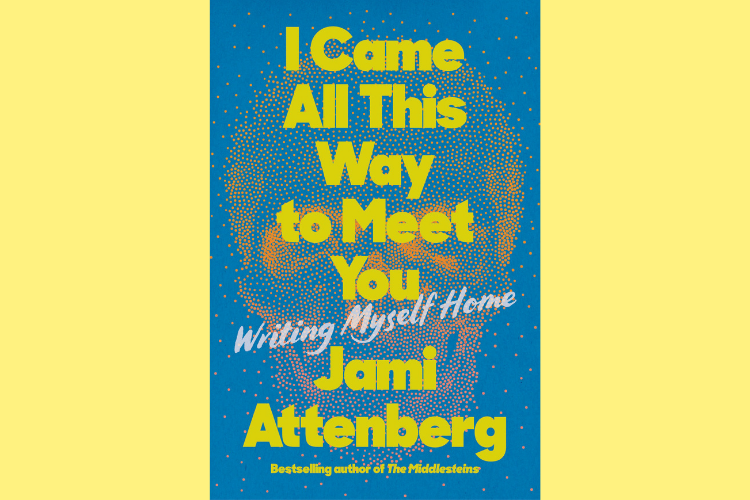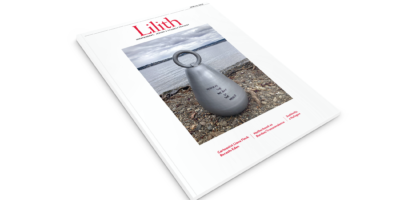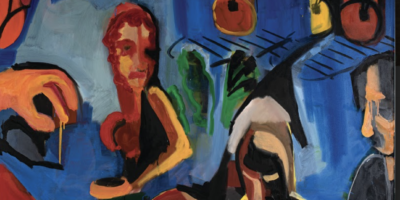
Jami Attenberg Turns Her Pen on Herself
Is a memoir a worthy project of someone whose life has no particular dramatic hook? For a writer of considerable talent like Jami Attenberg, I’d argue that yes, it is.
Her memoir I Came All This Way to Meet You: Writing Myself Home (Harper
Collins, $27.99) is a departure from Attenberg’s novels like The Middlesteins and All This Could Be Yours. But it tells a familiar story of a middle-class white woman—Jewish, from the Midwest suburbs—searching for meaning, making art, falling in and out of love, trying to know her family, her friends, and herself. Fans of Attenberg’s novels will find that this memoir has a worn-in comfort to it. We’ve been through these towns and in these apartments, we’ve met these families. We know this voice.
One of Attenberg’s major gifts as a novelist has been her ability to inhabit the
interior lives of her characters. With an expert’s hand, she turns this finely tuned microscope onto herself.
I Came All This Way to Meet You is loosely about Attenberg’s restlessness—her travels, her life on tour as a writer, and her attempts to make herself a home. Thus the writing itself can feel restless, shifting from place to place; Attenberg guides the reader around her life as if it were a museum exhibit on a lazy Sunday afternoon. In one essay, Attenberg is in Lithuania teaching a writing course. In another, she’s on an ill-advised mushroom trip in the mountains. She’s quarantined in New Orleans during the pandemic. She’s in Portugal fighting with a boyfriend.
Friends and lovers come and go. Not that these relationships aren’t deeply felt; they are. Attenberg seems like a really good friend. She holds the people in her life close and treasures them. She is a bit of a vagabond, albeit a thoughtful one. But that means these essays don’t always hang together, and I found myself occasionally getting lost in the various anecdotes that make them up.
It was, however, refreshing that not much seems to actually happen in this memoir. Attenberg’s traumas and triumphs aren’t laid bare for the reader to gawk at. Instead, they’re doled out quietly in meandering essays, as part of the larger story of her life.
In a landscape where most zeitgeisty memoirs are written either by authors who have survived some horrific trauma or are comedians (or both), I Came All This Way to Meet You provides a nice alternative. Devoid of a major inciting incident or climax, this memoir feels gentler, even as it deals with serious issues.
Attenberg, for example, writes sparingly but brutally about a sexual assault she experienced in college. This memory has a crispness to it that sets it apart
from the rest of the book. (“Thirty years past, and that sensation has never cooled. As good as I have become at compartmentalizing my tragedies, traumas, and fears, putting them aside, on ice, that moment remains a burning hot coal inside my chest.”)
Even though she explores the dark corners of her life, I felt cared for by Attenberg. She’s gently optimistic. She wants the best for herself (and for her
family and friends, and probably for you, too). She doesn’t avoid the bad stuff, but she doesn’t dwell on it, either. She spends more time describing an art installation she loves in New Orleans than she does her assault.
The real triumph of I Came All This Way to Meet You is Attenberg’s willingness to explore all the things that make up a life: the hard things, the small things, the fun things. It’s vulnerable—almost countercultural!—to write about a life that is, by all means, fairly average. But she does it with a confidence in her own voice and story that makes it a worthwhile read.
Catie Stewart works in political communications and lives in San Francisco.




